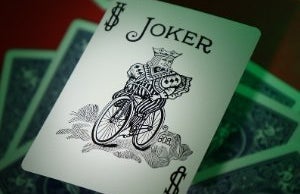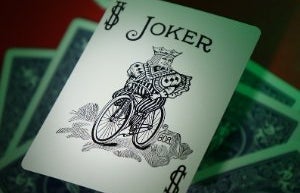If you’ve ever read a movie review by me, you’d know I usually try to see movies that interest me or have people in it who I like because I’ve seen their previous works, etc. Regardless, it’s pretty hard for me to hate a movie, because I try to know what I’m getting myself into. However, Joker: Folie à Deux, directed by Todd Phillips, takes the cake when it comes to unpleasantly surprising me. Overall, I thought the movie lacked plot and storyline, was too musical for the contents and themes of the film, and simply didn’t have a satisfying ending to commence the end of this “Joker era.”
I consider myself a pretty big fan of the first Joker movie. I thought the film did a fantastic job of tackling societal and governmental issues, and exposing how they protect and focus on the rich over those who may be suffering from mental illness, all while achieving a believable and non-supernatural villain arc for the main character. I adored all of this, including Joaquin Phoenix’s performance, which I thought was perfect. So, as a fan of the first film, I thought that the second film would be good, maybe even great. Nonetheless, the second film in this duology left me upset, unsatisfied, and simply a little shocked.
I knew going in that based on the last film’s ending, Arthur Fleck, also known as the Joker, would be in jail for murdering six people: his mother, his ex-co-worker, infamous talk show host Murray Franklin, and three drunk bullies on the subway. I pictured that the Joker would be trying to escape prison, and that the movie would be based on his life of freedom. The whole film was centered on his trial to get out of prison, only for us to never truly see him free. Within the last 15 minutes (out of 138 minutes) is when we see Arthur on the streets of Arkham City, technically a free man. But in order to explain this scene, I need to start from the beginning. This story begins with Arthur Fleck in jail and all of the guards teasing and mocking him by asking, “Do you have a joke for us today, Arthur?” It alludes to how he is treated in the prison, especially by those with authority. From the beginning of the film, you can’t help but notice his stature and how emaciated and tired he looked while he served his time. We learn very early on that Arthur has been going through a series of meetings with both a psychiatrist and his lawyer to determine if he was insane or unwell during the time he committed his crimes. His lawyer, who seems to genuinely care about Arthur’s mental and general well-being, tries to explain to Arthur that if they can prove he is currently sane, then they can most likely go to trial.
The story proceeds to show Arthur going through awful treatment by the guards at the prison, his meetings with his lawyer and doctor, and everyday prison life. He has a routine that’s repetitive, lifeless, and boring, but it’s still a routine. It does change slightly when he meets Lee Quinzel, also known as the infamous Harley Quinn, in a music class in the psychiatric ward of the prison. We learn that Lee Quinzel is a fan of Joker and watched the movie that was made about his murders many, many times. The two grow closer, from friends, and then quickly to lovers. Their relationship, or the lack thereof, was pretty rushed, lacked chemistry, and really didn’t excite me as much as I thought it was going to. While I adore Lady Gaga, her acting, and her music, I felt that all she brought to the film was her singing. We know she is a phenomenally talented singer, but why did her joining this film turn it into a full-blown musical? As I’ve mentioned before, the contents of this movie are dark and can be a little jarring at times, so I think that the amount of musical numbers was excessive and unnecessary. I can’t deny that the singing and musical numbers performed throughout the film were amazing, and that Phoenix and Gaga are immensely talented, but it just created a really odd plot, if that’s what you want to call it. I think the hype for this movie was valid, given how great the reviews were for the first film. However, I just think this movie was a miss. There were so many better ways it could’ve gone. I won’t spoil it, but even the ending was so random and felt out of place. This movie had the potential to announce an ending to this “Joker era” and/or potentially bring an entirely new side to the iconic character of Harley Quinn. Despite all of these reasons, the artists and actors involved are insanely talented and that’s obvious; I just think their talents weren’t necessarily used in the best ways for this film. Visually, the film was wonderful, but it pains me to say that I wouldn’t recommend Joker: Folie à Deux.


